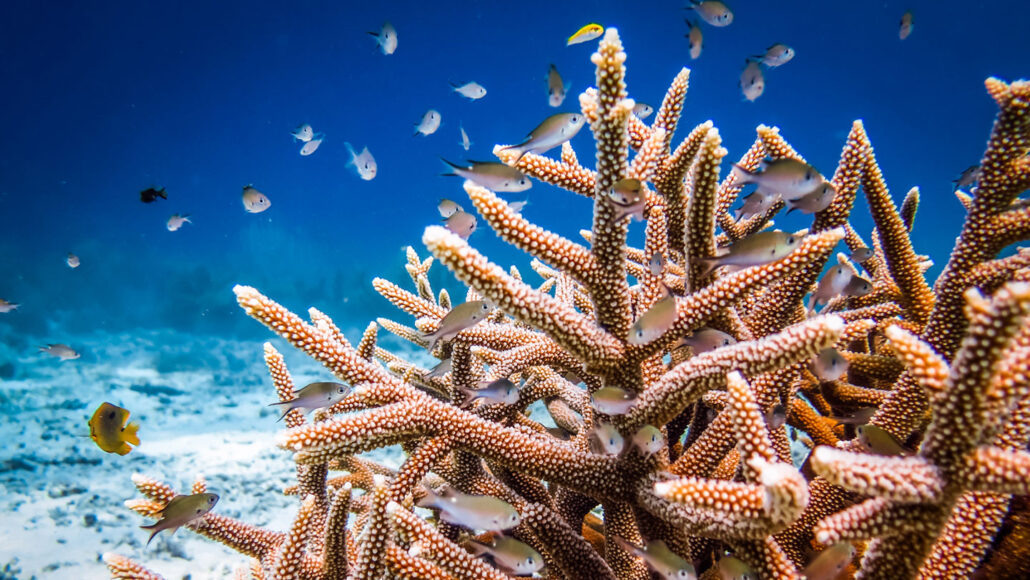Scientists Say: Coral
These reef-builders support some of the most vibrant marine ecosystems

This staghorn coral (Acropora cervicornis) gets its name from its prongy, antler-like shape.
Eternal Tides Photography LLC/500px/Getty Images
Come explore with us!
These reef-builders support some of the most vibrant marine ecosystems

This staghorn coral (Acropora cervicornis) gets its name from its prongy, antler-like shape.
Eternal Tides Photography LLC/500px/Getty Images
Corals are tiny marine animals that live in clustered groups on the ocean floor. Each group contains hundreds or even thousands of individuals. An individual coral animal is called a polyp. Polyp describes a kind of body shape — a long, thin body shape that often flares at one end like a vase. The coral’s base attaches to a solid surface, such as a rock. At the top, stinging tentacles sprout around the mouth and capture plankton drifting past.
Many coral species build porous structures called coral reefs. The kinds of coral that build reefs are often called “hard coral,” “stony coral” or “reef-building coral.” The polyps of reef-building corals secrete chemicals that harden around their soft bodies. When polyps die, this hard structure remains behind and new polyps may attach to it. This cycle repeats over time, forming elaborate structures with different shapes. For example, the staghorn coral (Acropora cervicornis) gets its name from its antler-like prongs. Brain coral (Diploria labyrinthformis) looks — you guessed it — like a brain.
Most reef-building corals contain zooxanthellae — photosynthetic microbes that live inside coral polyps. Just like plants, zooxanthellae use sunlight to make sugar, which the coral eats. In return, the zooxanthellae get protection inside the reef. But not all corals make coral reefs. “Soft corals” refer to non-reef builders. These are often mistaken for plants since they can sprout wildflower-like clusters of bendy, whiplike animals with feather-like tentacles.
Coral reefs are important marine ecosystems. They make up less than one percent of the entire ocean’s floor. But they are home to nearly one-quarter of all marine species. For example, over 4,000 fish species make their home among the coral reefs. Hundreds of other species, from shrimp to sea stars to sea grass, also live in coral reef ecosystems.
But corals are vulnerable to changes brought about by human activity. For example, excess fertilizer washes from crop fields into our oceans, fertilizing marine algae. That causes algae growth, which clouds the water and starves the sun-loving zooxanthellae and their coral buddies. Since many other life forms depend on corals for food, shelter and other needs, the coral death can upend life in these ecosystems and beyond.
Scientists saved some sick coral by treating them with amoxicillin— a common antibiotic.